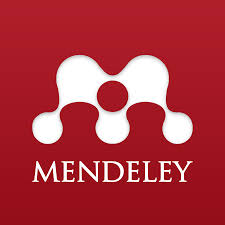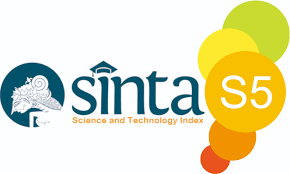About the Journal
geoedusains: jurnal pendidikan geografi published by the Department of Geography Education, the Faculty of Teacher Training and Education, Mulawarman University, which is published twice a year in June and December. It contains articles of research or study of literature in the field of Geography and Geography Education. Articles are written in Indonesia or English.
Focus and Scope
Geoedusains: Jurnal Pendidikan Geografi is devoted to original research work on all aspects of geography, including innovative approaches to geography research, teaching, and learning. The journal publishes articles about the results of research and teaching approaches. geoedusains: jurnal pendidikan geografi guarantees close interaction between various scientific and operational disciplines, which aims to improve understanding of human interaction and environmental systems as well as the education side.
Open Access Policy
This journal provides immediate open access to its content on the principle that making research freely available to the public supports a greater global exchange of knowledge.
Plagiarism Policy
PLAGIARISM INCLUDES BUT IS NOT LIMITED TO:
a. refer and/or quoting terms, words and/or sentences, data and/or information from a source without citing sources in the record citation and/or without stating the source adequately;
b. refer and/or quoting random terms, words and/or sentences, data and/or information from a source without citing a source in the record citation and/or without stating the source adequately;
c. using a source of ideas, opinions, views, or theory without stating the source adequately;
d. formulate the words and/or sentences themselves from the source of words and/or phrases, ideas, opinions, views, or theory without stating the source adequately;
e. submit a scientific papers produced and/or published by others as a source of scientific work without express adequately.
PREVENTION
In every article submitted to the geoedusains must be attached to a statement signed by the author that:
a. The article is free of plagiarism;
b. if at a later proved there is plagiarism in the article, the author is willing to accept the sanctions in accordance with the legislation.
SANCTIONS
a. reprimand;
b. letter of warning;
c. revocation of the article;
d. cancellation of publication.
Publication Ethics
JOURNAL PUBLISHER CODE ETHICS
a) Determining the name of the journal, the scope of science, the timeline, and the accreditation.
b) Determining the membership of the editorial board.
c) Defining the relationship between publishers, editors, peer review and other parties in the contract.
d) Appreciating the confidentiality of the contributing researchers, author, editor, and peer review.
e) Applying the norms and regulations regarding intellectual property rights especially on the copyrights.
f) Conducting the policy reviews on the journals and present it to the authors, editorial board, peer review, and readers.
g) Making the behavior code guidelines for editor and peer review.
h) Publishing journals on a regular basis.
i) Ensuring the availability of resources for sustainability journal publishing.
j) Establishing cooperation and marketing network.
k) Preparing for the licensing and other legal aspects.
EDITOR CODE ETHICS
a) Improving the quality of publications.
b) Ensuring the process to maintain the quality of published papers.
c) Leading the freedom in delivering opinion.
d) Maintaining the integrity of the author's academic track record.
e) Conveying corrections, clarifications, withdrawal, and an apology if necessary.
f) Owning the responsibility for styling and formatting the paper, while the contents and any statements in the paper are the responsibility of the authors.
g) Assessing policies and attitudes of the published journal from the author and peer review to increase responsibility and minimize errors.
h) Having an open minded personality in accepting the new opinion or views of others who is different than their personal opinion.
i) Prohibiting in defending our own opinion, the author or third parties which may result in a false decision.
j) Encouraging the author, in order to make improvements to the paper until it worth to publish.
PEER REVIEW CODE ETHIC
a) Receiving the task from the editors to review the papers and submit the review to the editor, as a matter of determining the feasibility of the paper for publication.
b) Reviewing the papers in a timely manner (on time) in accordance with the style guide based on scientific principles (method of data collection, the legality of the author, conclusions, etc.).
c) Reviewing the papers that have been corrected in accordance with the standards.
d) Encouraging the author to make improvements in the papers by providing feedback, suggestions, feedback, and recommendations.
e) Maintaining the author privacy by covering the results of the corrections, suggestions, and recommendations received by the author.
f) Reviewers must not review any papers who involve the reviewers in its work, directly or indirectly.
g) Following the guidelines for peer review in reviewing papers and assessing the evaluation form paper given by the editors.
h) Reviewing papers substantively by not correcting the grammar, punctuation and mistype.
i) Ensuring the principles of truth, novelty, and originality; prioritize the benefit of the paper for the development of science, technology, and innovation; also comprehending the impact on the development of science writing.
j) Prohibiting in defending own opinion, the author or third parties which may result on decision reference becoming non-objective.
k) Upholding the value of the objectivity and free from any influences.
l) Ensuring the confidentiality of findings in the paper until it is published.
m) Having broad understanding on the expertise and able to provide a review of the paper appropriately and correctly.
n) Refusing to do review if the research is not from the field of expertise. Instead, the peer review should be giving recommendation to the researcher if there is any other expert on the subjects.
o) Having an open minded personality in accepting the new opinion or views of others who is different than their personal opinion.
p) Refusing to do the review if the deadline given by the editor cannot be reached. If absent the peer review should notify the editor as early as possible.
q) The results of the review must be presented in an honest, objective, and supported by clear arguments. Some possible recommendations from the review are:
1) Accepted without repair
2) Accepted with minor repairs (after repaired by the author, it is not necessary to go to peer review)
3) Accepted with major repairs (after repaired by the author, return to the peer review for re-review)
4) Rejected and recommended for other publication
5) Rejected and recommended not to publish to any publication because scientifically the paper is flawed for the community.
r) Giving rejection for the last recommendation as the last choice related to the feasibility of the papers or with indication of severe violations of the code of ethics related to the author.
s) Reviewed papers aren’t allowed to be used for personal or third party interests. Moreover, The use of some of the contents of the reviewed papers must have received permission from the author.
AUTHOR/ARTICLE WRITER CODE ETHICS
a) Author collectively responsible for the work and the content of the article which cover methods, analysis, calculation, and its details.
b) Author immediately responds to the comments made by the peer review professionally and timely.
c) Author should inform the editor if they retract their paper.
d) The author describes the limitations in the study.
e) Author respects the publishers if they demand to not to publish the findings in the form of interviews or through any other media before the publication.
f) The author informs the editor of (a) paper that is part of a phased research, multidisciplinary, and different perspectives.
g) The author makes a statement that the papers submitted for publication is original, has not been published anywhere in any language, and not in the process of submission to another publisher.
h) If there is any error in the paper, the author should immediately notify the editor or publisher.
i) The use of materials from other publications which is copyrighted, should be given a written permission and gratitude.
j) The author refers to the work of others as appropriate in citations and quotations which used in the paper.
k) When delivering new discoveries or improving inventions the authors should mention the job previous researcher/writer/founder.
l) Penulis tidak diperbolehkan untuk memberikan daftar pustaka publikasi jika mereka tidak membaca publikasi.
m) Jika diminta, penulis menyiapkan bukti bahwa penelitian telah memenuhi persyaratan etika penelitian termasuk catatan lapangan.
n) Penulis merespons dengan memadai jika ada komentar atau umpan balik setelah makalah ini diterbitkan.
Author fee
Starting from the June 2024 edition (Vol 5 No. 1 2024), the geoedusains journal: Geography Education Journal charges publication fees to authors.
This journal charges the following author fees.
- Article Submission and Processing Charge: 0.00 (IDR)
Authors are NOT required to pay an Article Submission Fee as part of the submission process to contribute to review costs. - Article Publication Charge (APC): 300,000.00 (IDR) and 20,000.00 (IDR) for additional fee per 2 pages
If your article is accepted for publication, you will be asked to pay an Article Publication Fee to cover publication costs. The cost of publishing the first 10 pages is IDR 300,000 and if the manuscript is published with more than 10 pages, an additional fee of IDR 20,000 per 1 pages will be charged. Publication fees are sent by transfer to BNI Bank account 1991271204 in the name of Edwardus Iwantri Goma. Please let us know after you transfer your identity, the title of your article, and your affiliation, and attach your proof of payment to our email geoedusains@fkip.unmul.ac.id and upload them in the production section of the user page. However, we make it free for writers from other countries (outside Indonesia). - Fast Track Charge: 500,000.00 (IDR) and 20,000.00 (IDR) for additional fee per 1 pages
With the payment of this fee, the review, editorial decision, and author notification on this manuscript is guaranteed to take place within 6 weeks. The article manuscript must be in OJS. Fast track cost is 500,000 IDR. This charge is for the first 10 pages, and if any published manuscript over 10 pages will incur extra charges 20,000 IDR per 1 pages. Publication fees are sent by transfer to BNI Bank with account 1991271204 on behalf of Edwardus Iwantri Goma. Please contact us via email or WhatsApp for more information.










